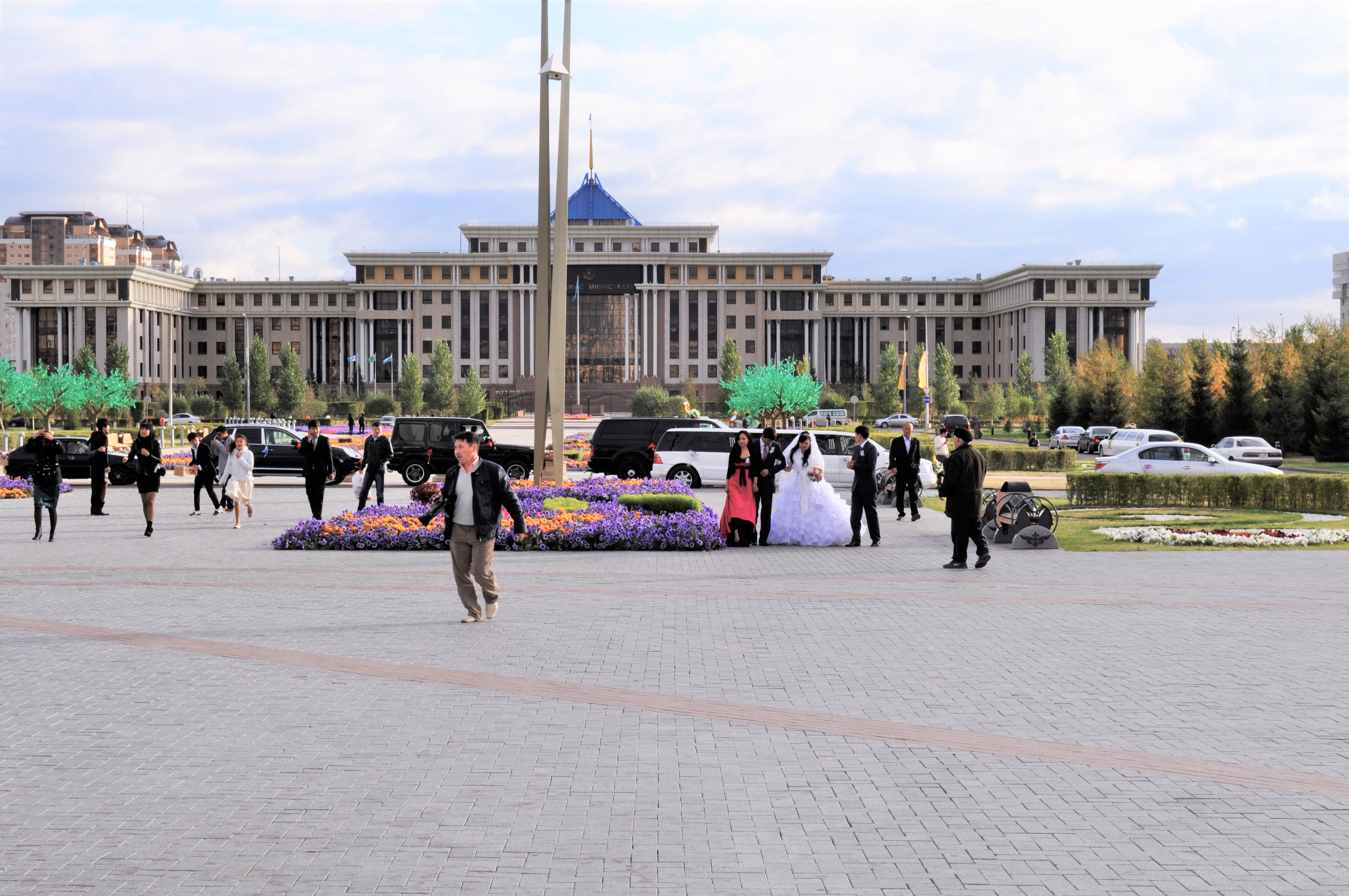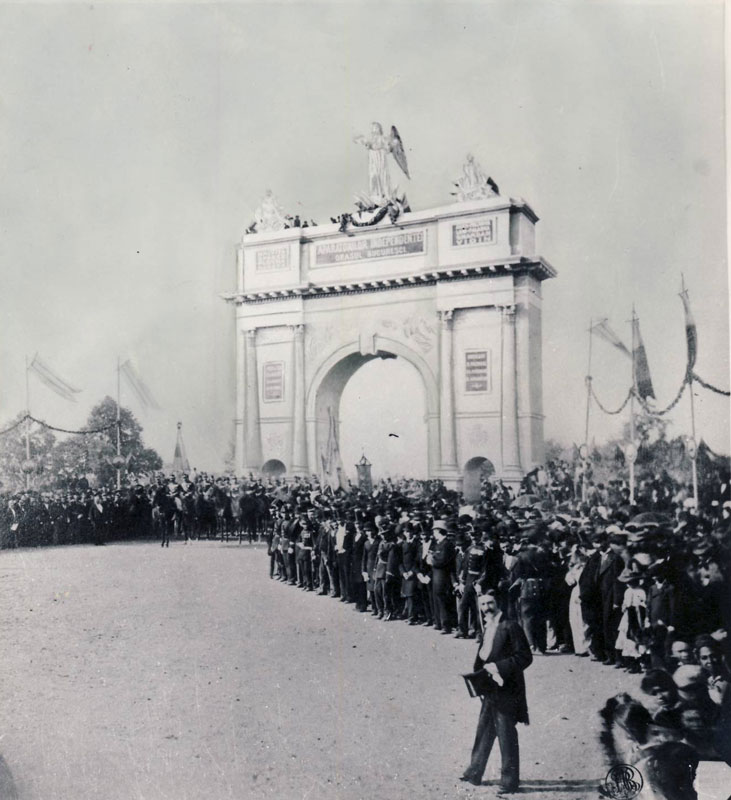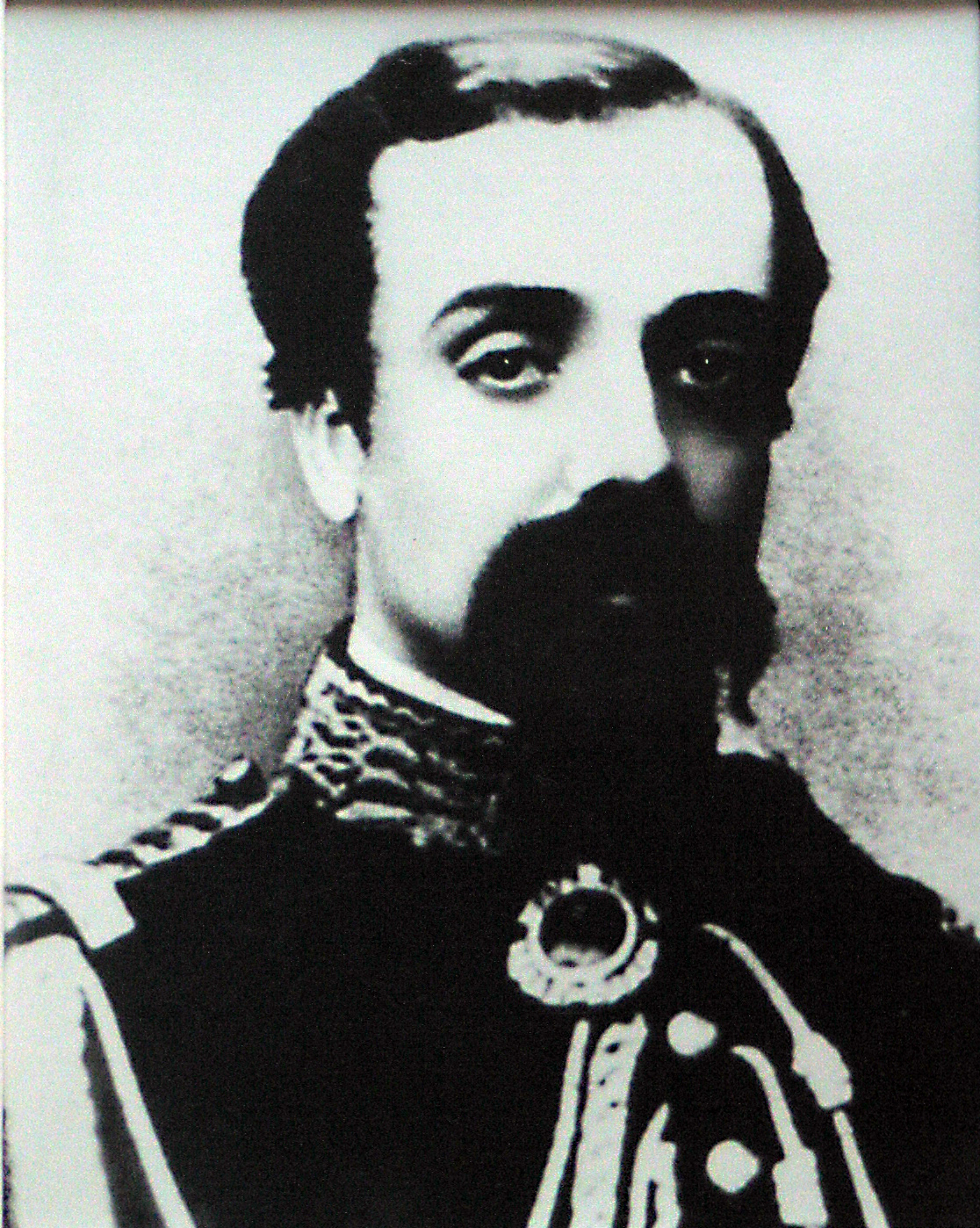|
Ministry Of National Defence (Romania)
The Ministry of National Defence () is one of the eighteen ministries of the Government of Romania. The current acting Minister of National Defence is Angel Tîlvăr. Ministry The Ministry of National Defence is the specialized body of the central public administration submitted to the Government conducting the national defence activity according to the stipulations of law and to the strategy of national security, with a view to safeguarding national sovereignty, state independence and unity, territorial integrity and constitutional democracy. The Ministry of National Defence is responsible to the Parliament of Romania, Parliament, the Supreme Council of National Defence (Romania), Supreme Council of National Defence and the Government of Romania, Government for implementation of provisions of the Constitution of Romania, Constitution, laws in force, decisions of the Supreme Council of National Defence (Romania), Supreme Council of National Defence and of the Government of R ... [...More Info...] [...Related Items...] OR: [Wikipedia] [Google] [Baidu] |
Angel Tîlvăr
Angel Tîlvăr (born 11 February 1962) is a Romanian politician and English teacher who, from 31 October 2022, holds the position of Ministry of National Defence (Romania), Minister of National Defense. He was elected Senate of Romania, senator in the 2004–2008 legislature and then a deputy in the legislatures starting in 2008, in Vrancea County on the lists of the Social Democratic Party (Romania), Social Democratic Party. Biography Born in Urechești, Vrancea, Romania, Tîlvăr graduated in 1985 from the University of Bucharest. He was an English teacher between 1985 and 2004. In the 2004–2008 legislature, Tîlvăr was a member of the friendship parliamentary groups with the Republic of Ivory Coast and the Republic of Estonia. He was a member of the Committee for Education, science, youth and Sport and its secretary, the Committee for Culture, art and mass media (February 2006 – February 2008) and the Committee for human rights, religions, and Minorities (until ... [...More Info...] [...Related Items...] OR: [Wikipedia] [Google] [Baidu] |
Constitution Of Romania
The current Constitution of Romania is the seventh permanent constitution in modern Romania's history. It is the fundamental governing document of Romania that establishes the structure of its government, the rights and obligations of citizens, and its mode of passing laws. It stands as the basis of the legitimacy of the Romanian government. Adopted on 21 November 1991, it was approved on 8 December 1991 in a national referendum and promulgated on the same day. The constitution was amended once by a referendum on 18 October 2003. The new text took effect on 29 October 2003. Structure The Constitution of 1991, as revised in 2003, contains 156 articles, divided into 8 titles: * Title I - General principles * Title II - Fundamental rights, liberties, and duties * Title III - Public authorities * Title IV - The economy and public finance * Title V - Constitutional Court * Title VI - Euro-Atlantic integration * Title VII - Revising the Constitution * Title VIII - Final and transi ... [...More Info...] [...Related Items...] OR: [Wikipedia] [Google] [Baidu] |
Ministries Established In 1858
Ministry may refer to: Government * Ministry (collective executive), the complete body of government ministers under the leadership of a prime minister * Ministry (government department), a department of a government Religion * Christian ministry, activity by Christians to spread or express their faith ** Minister (Christianity), clergy authorized by a church or religious organization to perform teaching or rituals ** Ordination, the process by which individuals become clergy * Ministry of Jesus, activities described in the Christian gospels * ''Ministry'' (magazine), a magazine for pastors published by the Seventh-day Adventist Church Music * Ministry (band), an American industrial metal band * Ministry of Sound, a London nightclub and record label Fiction * Ministry of Magic, governing body in the ''Harry Potter'' series * Ministry of Darkness, a professional wrestling stable led by The Undertaker See also * Minister (other) * Department (other) D ... [...More Info...] [...Related Items...] OR: [Wikipedia] [Google] [Baidu] |
Government Ministries Of Romania
A government is the system or group of people governing an organized community, generally a state. In the case of its broad associative definition, government normally consists of legislature, executive, and judiciary. Government is a means by which organizational policies are enforced, as well as a mechanism for determining policy. In many countries, the government has a kind of constitution, a statement of its governing principles and philosophy. While all types of organizations have governance, the term ''government'' is often used more specifically to refer to the approximately 200 independent national governments and subsidiary organizations. The main types of modern political systems recognized are democracies, totalitarian regimes, and, sitting between these two, authoritarian regimes with a variety of hybrid regimes. Modern classification systems also include monarchies as a standalone entity or as a hybrid system of the main three. Historically prevalent forms ... [...More Info...] [...Related Items...] OR: [Wikipedia] [Google] [Baidu] |
Defence Ministries
A ministry of defence or defense (see spelling differences), also known as a department of defence or defense, is the part of a government responsible for matters of defence and military forces, found in states where the government is divided into ministries or departments. Such a department usually includes all branches of the military, and is usually controlled by a defence minister or secretary of defense. The role of a defence minister varies considerably from country to country; in some the minister is only in charge of general budget matters and procurement of equipment, while in others they are also an integral part of the operational military chain of command. Historically, such departments were referred to as a ministry of war or department of war, although they generally had authority only over the army of a country, with a separate department governing other military branches. Prior to World War II, most "ministries of war" were army ministries, while the navy ... [...More Info...] [...Related Items...] OR: [Wikipedia] [Google] [Baidu] |
Ministry Of National Defence (Romania)
The Ministry of National Defence () is one of the eighteen ministries of the Government of Romania. The current acting Minister of National Defence is Angel Tîlvăr. Ministry The Ministry of National Defence is the specialized body of the central public administration submitted to the Government conducting the national defence activity according to the stipulations of law and to the strategy of national security, with a view to safeguarding national sovereignty, state independence and unity, territorial integrity and constitutional democracy. The Ministry of National Defence is responsible to the Parliament of Romania, Parliament, the Supreme Council of National Defence (Romania), Supreme Council of National Defence and the Government of Romania, Government for implementation of provisions of the Constitution of Romania, Constitution, laws in force, decisions of the Supreme Council of National Defence (Romania), Supreme Council of National Defence and of the Government of R ... [...More Info...] [...Related Items...] OR: [Wikipedia] [Google] [Baidu] |
Romanian Armed Forces
The Romanian Armed Forces ( or ''Armata Română'') are the military forces of Romania. It comprises the Land Forces, the Naval Forces and the Air Force. The current Commander-in-chief is Lieutenant General Gheorghiță Vlad who is managed by the Minister of National Defence while the president is the Supreme Commander of the Armed Forces during wartime. As of 2025, the Armed Forces number around 90,000 active personnel and 55,000 reserves. In 2023, the Land Forces had a reported strength of 35,500, the Air Force 11,700, the Naval Forces 6,800, and Joint Forces 17,500. Total defence spending currently accounts for 2.24% of total national GDP, which represents approximately 9.331 billion US dollars. The Armed Forces are built for territorial defence, with support to NATO and EU missions, and contributions to regional and global stability and security. Military service is voluntary in peacetime (since 2007), and compulsory in case of curfew, war, or national emergency. Hi ... [...More Info...] [...Related Items...] OR: [Wikipedia] [Google] [Baidu] |
Romania
Romania is a country located at the crossroads of Central Europe, Central, Eastern Europe, Eastern and Southeast Europe. It borders Ukraine to the north and east, Hungary to the west, Serbia to the southwest, Bulgaria to the south, Moldova to the east, and the Black Sea to the southeast. It has a mainly continental climate, and an area of with a population of 19 million people. Romania is the List of European countries by area, twelfth-largest country in Europe and the List of European Union member states by population, sixth-most populous member state of the European Union. Europe's second-longest river, the Danube, empties into the Danube Delta in the southeast of the country. The Carpathian Mountains cross Romania from the north to the southwest and include Moldoveanu Peak, at an altitude of . Bucharest is the country's Bucharest metropolitan area, largest urban area and Economy of Romania, financial centre. Other major urban centers, urban areas include Cluj-Napoca, Timiș ... [...More Info...] [...Related Items...] OR: [Wikipedia] [Google] [Baidu] |
Supreme Council Of National Defence (Romania)
The Supreme Council of National Defence (''Consiliul Suprem de Apărare a Ţării''; acronym: CSAT) is the autonomous administrative authority in Romania, invested by the Constitution with the task of organising and coordinating, by unanimous decisions, the activities related to the country's defence and national security. Control The activity of the Council is examined by the Parliament. Annually, not later than the first trimester of the following year, if and when asked by the special committees of the Parliament, and also whenever necessary, the Council presents, in a joint session of the Chamber of Deputies and the Senate, its report on activities it has developed. Leadership and Members * President of the Council: President of Romania * Vice President of the Council: Prime Minister of Romania * Members or the Council: ** Minister of National Defence ** Minister of Internal Affairs ** Minister of Foreign Affairs ** Minister of Justice ** Minister of Economy ** Minister of ... [...More Info...] [...Related Items...] OR: [Wikipedia] [Google] [Baidu] |
Minister Of National Defence (Romania)
The Romanian Minister of National Defence () is the minister responsible for the Ministry of National Defence (Romania), Ministry of National Defence and the Romanian Armed Forces. List of officeholders :''Romania used the Julian calendar until 1919, but all dates are given in the Gregorian calendar.'' United Principalities (1861–1881) Kingdom of Romania (1881–1947) Socialist Republic of Romania (1947–1989) Romania (1989–present) References {{authority control Ministry of National Defence (Romania), Government ministries of Romania, Defence Foreign relations of Romania Defence ministries, Romania Ministers of defence of Romania, Ministries established in 1861 1861 establishments in Romania ... [...More Info...] [...Related Items...] OR: [Wikipedia] [Google] [Baidu] |
Parliament Of Romania
The Parliament of Romania () is the national Bicameralism, bicameral legislature of Romania, consisting of the Chamber of Deputies (Romania), Chamber of Deputies () and the Senate of Romania, Senate (). It meets at the Palace of the Parliament in Bucharest, the capital. Prior to the modification of the Constitution of Romania, Constitution in 2003, the two houses had identical attributes. A text of a law had to be approved by both houses. If the text differed, a special commission () was formed by deputies and senators, that "negotiated" between the two houses the form of the future law. The report of this commission had to be approved in a joint session of the Parliament. After the 2003 referendum, a law still has to be approved by both houses, but each house has designated matters it gets to deliberate before the other, in capacity of "deciding chamber" (). If that first chamber adopts a law proposal (relating to its competences), it is passed on to the other one, which can ap ... [...More Info...] [...Related Items...] OR: [Wikipedia] [Google] [Baidu] |
Military Expenditure Percent Of GDP
A military, also known collectively as armed forces, is a heavily armed, highly organized force primarily intended for warfare. Militaries are typically authorized and maintained by a sovereign state, with their members identifiable by a distinct military uniform. They may consist of one or more military branches such as an army, navy, air force, space force, marines, or coast guard. The main task of a military is usually defined as defence of their state and its interests against external armed threats. In broad usage, the terms "armed forces" and "military" are often synonymous, although in technical usage a distinction is sometimes made in which a country's armed forces may include other paramilitary forces such as armed police. Beyond warfare, the military may be employed in additional sanctioned and non-sanctioned functions within the state, including internal security threats, crowd control, promotion of political agendas, emergency services and reconstruction, pro ... [...More Info...] [...Related Items...] OR: [Wikipedia] [Google] [Baidu] |



